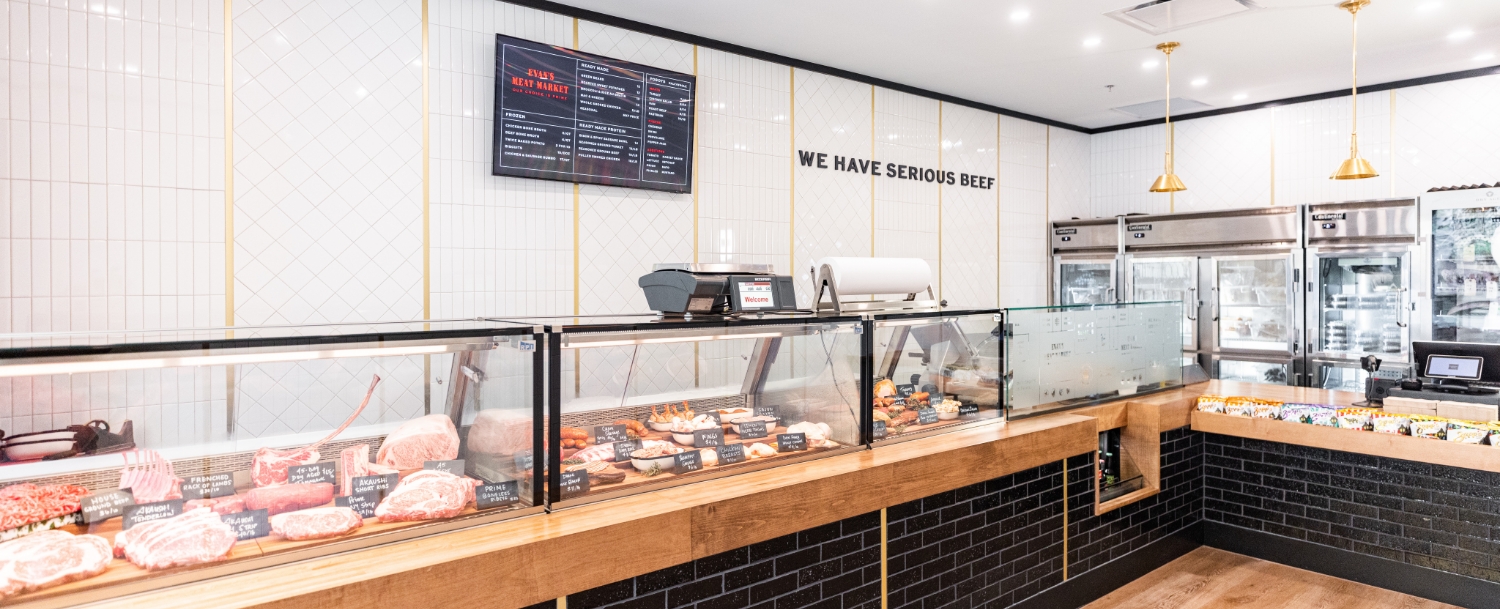Exceptional Service and Quality at Bagley Meat Market Edwardsville IL
Exceptional Service and Quality at Bagley Meat Market Edwardsville IL
Blog Article
Why Purchasing at a Neighborhood Meat Market Guarantees Fresh, High-Quality Cuts
Buying at a local meat market uses distinctive advantages that commonly go unnoticed by consumers accustomed to larger retail chains. These markets give direct access to fresh, high-quality cuts, a result of reduced transport time from ranch to counter. This not just boosts taste however likewise supports neighborhood farmers, promoting neighborhood relationships and lasting practices. In addition, strenuous quality assurance measures guarantee that each acquisition satisfies high standards of security and quality (bagley meat market edwardsville il). Yet, the implications of picking regional extend beyond immediate advantages, prompting a better evaluation of what this selection genuinely implies for both customers and the local economic situation.
Benefits of Local Sourcing
In the world of food procurement, the advantages of neighborhood sourcing attract attention plainly. By purchasing meat from neighborhood markets, consumers gain direct accessibility to items that are often fresher and a lot more savory than those located in bigger, industrial supermarkets. Regional sourcing reduces the moment and distance food travels from farm to table, which not just improves taste however likewise protects nutritional value.

In addition, local sourcing commonly provides openness relating to the beginnings of the meat. Consumers can ask about the farming methods made use of, pet well-being standards, and whether the meat is grass-fed or organic. This information empowers buyers to make enlightened choices lined up with their values.
Quality Control Criteria
Neighborhood meat markets often adhere to rigorous quality assurance requirements that ensure the products offered fulfill high safety and security and quality standards. These criteria generally incorporate numerous stages of the meat manufacturing procedure, from sourcing to managing and storage.
First, local markets often develop rigid vendor criteria, making certain that just trustworthy ranches and manufacturers are used - bagley meat market edwardsville il. This decreases the possibility of contamination and promotes higher animal welfare requirements. Additionally, many neighborhood meat markets execute normal examinations to confirm that the meat is refined under hygienic conditions, even more lessening health risks
Temperature control is an additional essential aspect of quality assurance. Local meat markets frequently keep an eye on refrigeration systems to maintain optimal storage space temperature levels, guaranteeing that meat continues to be safe and fresh for consumption. The execution of traceability systems allows markets to track the origin of their items, providing transparency and accountability.
Lastly, staff at regional meat markets are commonly trained to acknowledge indicators of spoilage and understand proper handling methods. This commitment to quality assurance not only elevates the total criterion of the meat but additionally promotes customer trust fund, making neighborhood meat markets a reputable resource for high-quality cuts.
Sustaining Regional Farmers
Sustaining neighborhood farmers is necessary for cultivating a sustainable food system and enhancing area resilience. When consumers choose to patronize neighborhood meat markets, they straight add to the resources of farmers in their area. This not just supports the neighborhood economic climate but also strengthens the agricultural sector, ensuring that it stays practical and dynamic.


In addition, sustaining local farmers promotes a sense of community and link between producers and customers. It urges openness in food sourcing and imparts count on, as clients can establish partnerships with the people that increase their food. This direct connection ultimately leads to an extra involved and notified public, which is vital for promoting for lasting agricultural practices in the future.
Lasting Practices
Sustainable techniques in meat markets play a vital function in promoting ecological stewardship and guaranteeing animal welfare. Neighborhood meat markets often prioritize sourcing their items from ranches that execute moral and lasting farming techniques. These techniques include rotational grazing, which aids keep dirt wellness and decreases carbon exhausts, together with minimizing the usage of antibiotics and hormones in livestock.
Moreover, local meat markets usually emphasize transparency in their supply chains. Consumers are offered with info relating to the origin of their meat, permitting them to make enlightened selections that align with their worths. By sustaining local farmers who exercise lasting methods, customers contribute to the preservation of biodiversity and the decrease of helpful hints transportation emissions connected with long-distance meat distribution.
Additionally, many regional meat markets take part in waste reduction approaches, such as making use of every component of the animal and promoting off-cuts that might otherwise go unsold. By promoting a more sustainable approach to meat consumption, these markets not only offer premium items but also add positively to the setting and pet welfare. Basically, purchasing at a neighborhood meat market lines up customers with a more comprehensive motion in the direction of ethical and accountable food sourcing.
Individualized Customer Support
Buying at a meat market often incorporates greater than just the items offered; it is likewise about the experience and the connections built between customers and personnel. Customized customer care is a trademark of regional meat markets, establishing them apart from bigger grocery chains. Well-informed personnel make the effort to comprehend specific client preferences, making certain that each browse through is tailored to particular demands.
Customers take advantage of expert suggestions on cuts, cooking methods, and preparation ideas, fostering a feeling of trust and commitment. This personalized interaction permits consumers to ask questions and look for recommendations, leading to informed investing in choices. Team members typically remember normal clients and their preferences, producing a welcoming ambience that grows area ties.
Furthermore, try these out individualized service reaches special demands, such as personalized cuts or details preparation techniques, which bigger merchants might not accommodate. This level of interest strengthens the commitment of neighborhood meat markets to top quality and client satisfaction.
In essence, customized customer care not just boosts the shopping experience yet likewise makes sure that customers leave with the best products fit to their culinary requirements, making every visit a gratifying one.
Conclusion
Supporting local farmers promotes area connections and enhances the regional economic situation, while lasting practices add to ecological stewardship. Additionally, individualized client service improves the purchasing experience, making neighborhood meat markets a recommended choice for consumers looking for both top quality and ethical factors to consider in their food sourcing.
The effects of selecting local extend past prompt advantages, triggering a more detailed examination of what this option really implies for both consumers and the regional economic climate.
Supporting local meat markets also contributes to the neighborhood economic situation. Neighborhood meat markets regularly keep track of refrigeration systems to preserve optimum storage temperature levels, guaranteeing that meat continues to be fresh and secure for intake.Neighborhood farmers are often a lot more attuned to the particular requirements of their areas, expanding plants and elevating livestock that straighten with neighborhood tastes and preferences. Supporting regional farmers promotes area connections and enhances the neighborhood economic climate, while lasting practices contribute Recommended Reading to environmental stewardship.
Report this page